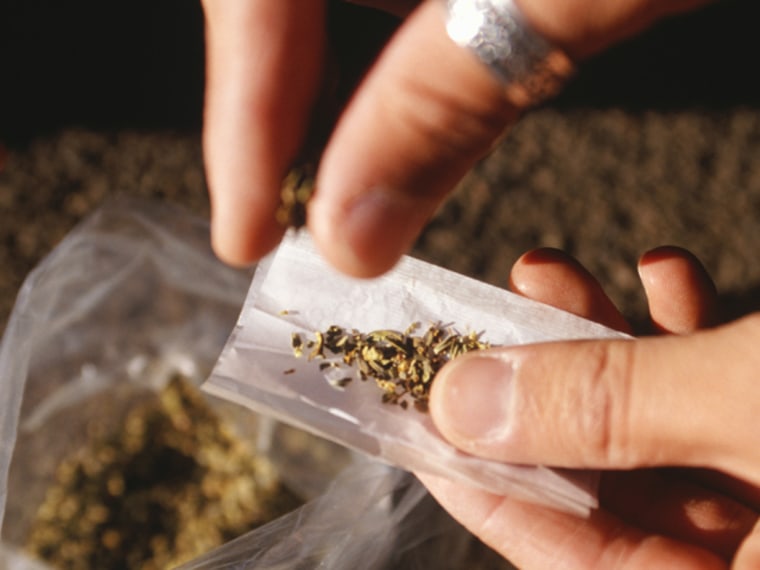OK, so you smoked a few joints, and maybe even tried something stronger. You’re thinking that sharing your experiences with your kids will help drive home the anti-drug message. A little bit of the "I know where you are and I’ve been there myself" bonding-with-your-kid approach.
But new research suggests that strategy may be misguided and that parents ought to be mum about what they did in their wayward youth.
The study, published today in the journal Human Communication Research, found that children whose parents did not disclose drug use, but did deliver a strong antidrug message, were much more likely to develop anti-drug attitudes of their own. When parents did share their own experiences, even when they were very negative ones, the anti-drug message was blunted.

“I think parents are expecting that if they share their experiences this can be used as a teachable moment,” said the study’s lead author Jennifer Kam, an assistant professor of communication at the University of Illinois at Urbana-Champaign. “But even when the parents say they regretted using drugs, the fact that the parents used them at all undermines the negative point they’re trying to make.”
The new study examined drug surveys filled out by 561 U.S. kids of European and Latino descent who were in the sixth, seventh and eighth grades. The researchers chose to study these ethnic groups because they have the highest rates of alcohol and marijuana use in the eighth grade.
The kids were given wide ranging surveys that included questions about their attitudes toward drugs, whether they used drugs, and what kinds of messages their parents were giving them.
The study added to the growing mound of evidence showing that parents who take the time to talk to their kids can have a big impact on their attitudes, even if it doesn’t always look like the message is sinking in. But, it also showed that telling your kids about your own past drug use can be a mistake.
Andreea Crauciuc, a licensed social worker who counsels addicted teens, isn’t surprised by the new findings.
“I’ve certainly heard from teenagers what they think about their parents’ substance abuse,” said Crauciuc, who does outpatient addiction treatment at the Charles O’Brien Center at the University of Pennsylvania. “A lot of times what I hear is, ‘My parents turned out OK.’ The implication is that if the parents used drugs and turned out OK then the teen will, too.”
Ultimately, Crauciuc said, the biggest message for kids is what parents actually do, as opposed to what they say. “Parents are a very strong template for the models of who the children should be,” she said. “I think verbal content is absorbed very differently than the information kids get through observation.” Not everyone is ready to tell parents to keep quiet about their druggy pasts. “I don’t think the broad literature supports the idea that you shouldn’t tell your kids about your past,” said Patrick Tolan, a professor in the Curry School of Education and in the department of psychiatry at the University of Virginia and director of the university’s Youth-Nex Center.
Tolan does suggest that parents who want to talk about their own drug use should think carefully about what they’re going to say beforehand.
Beyond that, what’s important is to keep talking to your kids. “The answer is a sustained conversation that starts with information about what the kid is doing and a calm presentation of the whole picture,” Tolan said. “We do know from other research that parental values are very influential even though kids may not admit it and even if it doesn’t seem so to parents.”